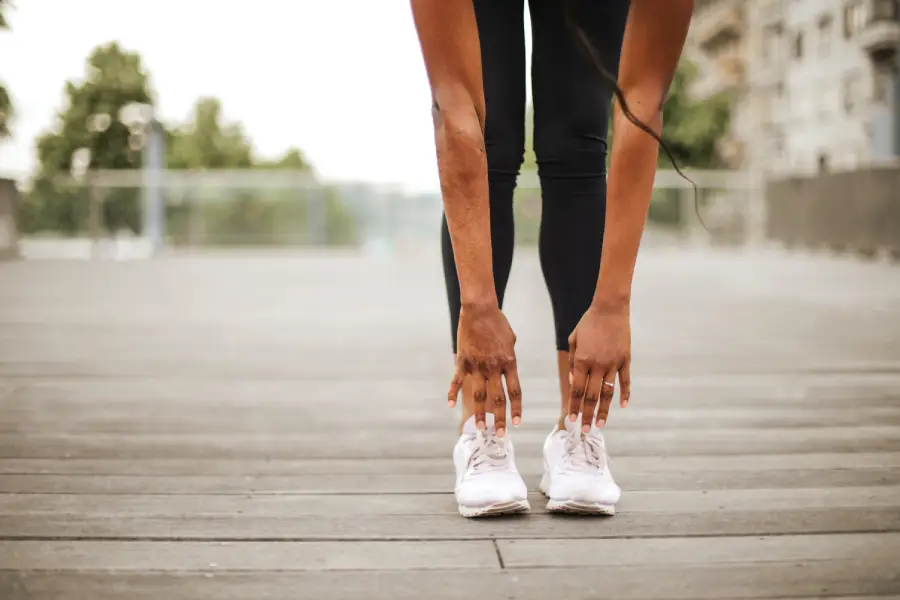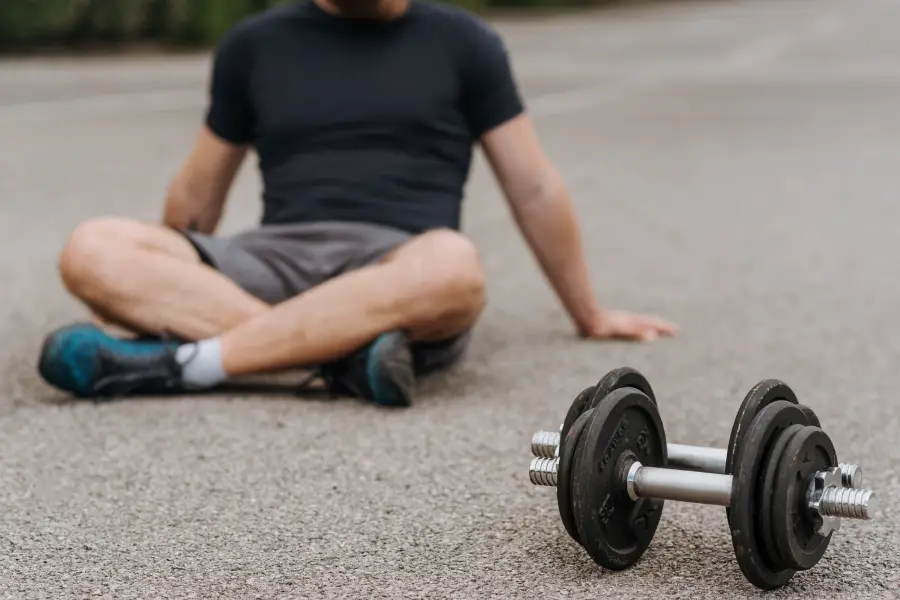
How to Prevent Heavy Aching Legs and Fatigue
Heavy Aching Legs and Fatigue. If you regularly deal with heavy, tired legs and persistent fatigue, you know how much these symptoms can drag you down day after day. But don’t accept these frustrating feelings as inevitable – there are ways to help prevent and manage heavy, aching legs and lack of energy. Making smart lifestyle choices and being proactive about your health can help minimize the chances of grappling with chronically heavy limbs and constant exhaustion.
Contents
How to Prevent Heavy Aching Legs and Fatigue
Heavy fatigue and leg ache can drastically impact daily life. These symptoms often result from various factors, including physical exertion, medical conditions, or poor lifestyle choices.
Heavy aching legs can be attributed to several underlying causes. They might stem from muscle overuse, prolonged standing or sitting, or conditions like deep vein thrombosis (DVT), where blood clots form in the legs. Such symptoms can also be exacerbated by obesity, as excess weight puts extra strain on the legs, making them feel heavy and tired.
Fatigue, on the other hand, is a pervasive feeling of tiredness and can be both a cause and a consequence of heavy aching legs. When the legs are overworked or not receiving adequate blood circulation, it can lead to tiredness, making even simple tasks feel exhausting.
Preventing and managing heavy, aching legs and fatigue involves various strategies. Regular exercise, maintaining a healthy weight, and avoiding prolonged periods of sitting or standing can help relieve these symptoms. Compression stockings can help improve blood flow while staying hydrated, and eating a balanced diet also plays a crucial role in reducing leg discomfort and fatigue.
Heavy Legs:
- The feeling of excessive weight in the legs.
- Difficulty lifting or moving the legs.
- A sensation of dragging or dragging in the leg muscles.
Aching Legs:
- Persistent, dull, or throbbing pain in the leg muscles.
- Discomfort that may worsen with movement or extended periods of standing.
Fatigue:
- A pervasive sense of tiredness and exhaustion.
- Difficulty in performing daily tasks due to overall weariness.
Muscle Soreness:
- Muscles in the legs may be tender to the touch.
- Soreness may occur after physical activity or even at rest.
Swelling:
- Edema, or swelling, in the legs, particularly around the ankles.
- Swelling may be more noticeable as the day progresses.
Cramping:
- Sudden, painful muscle contractions, often in the calf or thigh.
- Cramps can be brief or persistent and may worsen with movement.
Restlessness:
- An uncontrollable urge to move the legs is known as Restless Leg Syndrome (RLS).
- This restlessness can exacerbate the discomfort and disrupt sleep.
Discoloration:
- Changes in skin color, such as a bluish or reddish tint.
- Discoloration may occur in areas with poor circulation.

Exercise Those Legs
One of the best ways to keep your legs from feeling heavy and achy is to get them moving! Regular exercise promotes healthy circulation in your lower limbs to reduce blood pooling that can lead to that weary heaviness. Aim to be moderately active for 30 minutes most days. Moving your body also fights fatigue by increasing energy-boosting endorphins and improving oxygen delivery throughout your system.
If you have a desk job or are sedentary for long stretches, get up and walk around periodically. Simple leg stretches and calf raises also keep blood flowing. Use a standing desk or stability ball periodically to remain active while working.
Eat Energy-Boosting Foods
Diet plays a significant role in preventing legs from feeling tired and heavy. What you eat directly impacts your energy levels and how well your muscles and circulatory system function. Emphasize whole, fresh foods like fruits, veggies, lean proteins, nuts and seeds, beans and legumes, whole grains, and healthy fats from avocado, olive oil, fatty fish, etc. Stay hydrated by drinking plenty of water, as dehydration can quickly provoke fatigue.
Limit consumption of processed carbs and added sugar, which causes spikes and crashes in blood sugar, worsening heavy limbs and zapping energy. Avoid excessive alcohol, which promotes fluid retention in the legs. Caffeine provides quick energy but can disrupt sleep, so use it moderately.
Getting adequate iron, magnesium, potassium, and B vitamins prevent their deficiencies, which can cause heavy, achy legs and general fatigue. Eat iron-rich foods like meat, spinach, and beans or supplement if levels are low. A balanced diet gives your body the right fuel mix to keep your legs feeling light and energetic.
Optimize Sleep Habits
Reluctant symptoms should not be ignored in the hopes that they will go away. Adults need 7-9 hours nightly for optimal health. Prioritize consistent bed and wake-up times to regulate your circadian rhythms. Limit electronics and avoid late-day caffeine for better sleep quality. Evaluate your bedroom setup – a cooler temperature, blackout curtains, and a comfortable mattress facilitate restorative rest.
Allow time to wind down before bed by reading, bathing, or doing light stretches. Elevating your legs while sleeping can improve circulation to prevent that heavy feeling. Address any sleep disorders like insomnia or apnea, which impede energy levels.
Watch Your Salt Intake
Excess sodium in the diet causes your body to retain fluid, potentially resulting in swelling and heaviness in the limbs and high blood pressure. Limit processed and restaurant foods that supply the bulk of dietary sodium. Cook more meals at home using fresh herbs and spices to flavor dishes instead of salt. Read labels and opt for low-sodium versions of canned goods, condiments, sauces, and snacks.
This allows you to control precisely how much salt is added. Stay well hydrated, as a higher fluid intake helps flush out excess sodium before it can accumulate.
Manage Health Conditions Proactively
Certain chronic health conditions predispose you to heavy, tired legs and low energy. Regular medical checkups allow early diagnosis and treatment to help minimize these symptoms. For example, controlling high cholesterol helps prevent peripheral artery disease, which impedes leg circulation.
Keeping diabetes in check prevents neuropathy and fatigue from uncontrolled blood sugars. With hypothyroidism, prompt treatment with thyroid hormone replacement averts metabolism issues, promoting leg heaviness and fatigue. Identify and manage any conditions through lifestyle and medications.
Avoid Prolonged Standing
If you have a job or daily activities that require prolonged standing, this can take a toll on your legs. Gravity causes blood to pool in the lower limbs when standing for long periods, creating that weary heaviness. Make an effort to periodically sit or walk around to activate your leg muscles and keep circulation going.
To avoid being in a sedentary position for too long, it’s recommended to alternate between sitting and standing throughout the day. Wear compression socks to help blood return to the heart against gravity’s pull. Pace yourself and limit other physically demanding activities to conserve energy.
Lose Excess Weight
Extra body weight, especially around the midsection, further exacerbates fatigue and heaviness in the legs and feet. Losing even a moderate amount of weight if overweight can help reduce these symptoms by decreasing the burden on your circulation and joints. Focus on permanent lifestyle changes like portion control, home cooking, and increased physical activity rather than fad diets.
Even a 5-10% reduction in body weight can make a noticeable difference in leg fatigue and energy levels. Weight loss also alleviates related health issues like arthritis that exacerbate achiness.
Avoid Smoking and Excess Alcohol
Smoking constricts blood vessels, impairing circulation and promoting heaviness and fatigue in the legs after activity. Quitting improves blood flow. Alcohol in excess also causes fluid retention and disrupted sleep, leaving you feeling worn out. Limit intake to moderate levels, like one drink daily for women and two for men. The less you smoke and drink, the better for your leg health and energy stores.
Relax and Destress
High stress levels create muscle tension, leading to pain and heaviness in the legs. Anxiety and worrying also sap your mental and physical energy. Make time each day to relax through yoga, deep breathing, meditation, or calming hobbies. Massage therapy eases muscle tightness.
Social connection and adequate fun time also help manage stress. Keep obligations reasonable, and learn to say no to extra duties that drain you. Staying chill keeps your legs and mind from fatigue.
Listen to Your Body
Tuning into your body’s signals can alert you to tweak your self-care before leg heaviness and low energy spiral out of control. Reluctant symptoms should not be ignored in the hopes that they will go away. Lighten your schedule and take time to rest if your legs ache and feel tired.
Hydrate, fuel up with nutritious foods, stretch your muscles, and elevate your legs to mitigate discomfort. Seek medical guidance if symptoms persist despite your best efforts. Being proactive keeps you energized.

Potential Medical Causes
If lifestyle measures aren’t providing sufficient relief for heavy legs and fatigue, several health conditions could be to blame:
Peripheral Artery Disease (PAD)
PAD causes narrowing of the arteries that supply oxygen and nutrients to the legs and feet. This results in cramping, pain, and tiredness in the limbs, especially with activity, as muscles are not getting adequate blood flow. PAD is associated with smoking, diabetes, high cholesterol, high blood pressure, and advanced age. The treatment primarily aims to bring about lifestyle changes accompanied by medications that can help open up blocked blood vessels.
Chronic Venous Insufficiency
This condition damages the valves inside veins, leading to improper blood circulation and pooling in the lower extremities. The resulting pain, achiness, swelling, and fatigue in the legs worsen after long periods of sitting or standing. Compression stockings and medications to strengthen veins are used to improve symptoms.
Anemia
Anemia develops when you lack adequate healthy red blood cells to transport oxygen throughout the body. This can cause extreme fatigue, weakness, shortness of breath, and a heavy sensation in the legs. Different types of anemia exist, like low iron or B12 levels, bleeding disorders, bone marrow problems, kidney issues, and certain medications. Treatment involves dietary changes, iron supplements, medications, or blood transfusions in some cases.
Lymphedema
When lymph nodes don’t correctly drain fluid from tissues, it leads to swelling, usually in the arms and legs. This accumulation of fluid causes sensations of heaviness, achiness, and tightness. Lymphedema may be primarily due to abnormal lymph vessel development or secondary to node damage or removal from cancer treatment, infection, or trauma. Compression garments, massage, and exercises to promote drainage can help manage it.
Diabetes
Excess sugar in the blood damages nerves over time and can lead to diabetic neuropathy, causing numbness, tingling, weakness, and pain in the feet and legs. Fatigue from uncontrolled blood sugars is also common. Diet, exercise, medications, and insulin management all help control symptoms and prevent complications.
Fibromyalgia
This poorly understood chronic condition is characterized by widespread muscle pain, profound fatigue, sleep problems, and cognitive difficulties. It may be related to nerve and pain-signaling abnormalities. While not curable, medications, lifestyle modifications, and cognitive behavioral therapy can provide relief.
Chronic Fatigue Syndrome
This complex disorder involves debilitating fatigue lasting over 6 months that is not improved by rest and worsened by activity. Muscle pain, impaired memory and concentration, insomnia, and headaches frequently occur. While no specific cause is known, some theories connect it to viral infections, immune system abnormalities, and nervous system issues. Pacing activities and cognitive behavioral therapy help manage it.
Hypothyroidism
When your thyroid gland doesn’t produce enough hormones, it causes a decrease in metabolism. This can lead to unexplained fatigue, muscle aches, limb heaviness, and weight gain. Blood tests check hormone levels, and hormone replacement medications like levothyroxine reverse symptoms when caught early.
Multiple Sclerosis
MS is an autoimmune disease attacking the nerves’ protective myelin sheath. This disrupts nerve signaling, leading to numbness, weakness, dizziness, fatigue, and impaired coordination or balance. While unpredictable, relapsing-remitting MS can be managed with medications and lifestyle adaptations.
Restless Leg Syndrome
RLS causes uncomfortable sensations in the legs when sitting or lying down, relieved by moving them. This disrupts sleep and leads to daytime fatigue. While not fully understood, it may involve nerve signaling abnormalities. Lifestyle measures like avoiding caffeine and medications like dopamine agonists, anticonvulsants, and opiates can help.
Why do I feel so tired and my legs ache?
Feeling tired and having achy legs can have several causes. It often happens after prolonged physical exertion, standing for many hours, or when the body is exhausted at the end of the day. Other times, it may indicate more severe health issues. Common reasons are lack of movement and a sedentary lifestyle, which lead to blood pooling in the legs and a heavy sensation. Deficiencies in vitamins and minerals like iron, magnesium, potassium, or B vitamins can also cause similar symptoms.
Diseases like anemia, diabetes, thyroid disorders, or others affecting circulation and metabolism increase the risk of fatigue and achy legs. It is essential to allow your body sufficient rest, engage in daily physical activity, and maintain a balanced diet. If the symptoms persist, it is advisable to see a doctor for evaluation. Identifying and addressing the root cause is vital to finding relief.
What causes aching heavy legs feeling?
The sensation of heavy, achy legs can be caused by several factors. The most common are circulatory problems that lead to blood accumulation in the veins of the lower limbs. Conditions like peripheral artery disease or chronic venous insufficiency impair average circulation. Prolonged sitting, standing for hours, obesity, and wearing improper footwear also facilitate heaviness in the legs. Edema caused by fluid retention or kidney disorders contributes as well.
Deficiencies in essential minerals like iron, magnesium, and potassium cause cramps and tiredness. Properly managing diseases like diabetes or hypothyroidism helps prevent symptoms. Evaluating lifestyle habits and getting medical advice can determine the cause so appropriate treatment can be initiated.
When should I worry about achy legs?
Aching, tired legs are often harmless, but there are instances when they should raise concern. If the pain is severe, persistent even at rest, and limits mobility, it warrants medical investigation. Signs like swelling, redness, numbness, or skin discoloration require evaluation. If feelings of fatigue are chronic and don’t resolve with adequate rest, it may signal an underlying problem. Seeking medical advice is prudent if symptoms occur without physical exertion or at the end of the day without clear triggers.
Sudden or progressively worsening leg pain can indicate circulatory or neurological conditions needing treatment. Don’t ignore symptoms, but take action early to prevent complications!
How do you get rid of heavy tired legs?
Mediating from heavy, tired leg sensations requires lifestyle changes and diligent self-care. Daily movement, stretching exercises, and gentle massage help boost circulation. Avoid prolonged sitting or standing. Elevate your legs when seated. Wear compression stockings. Rest with your legs propped above your heart level. Stay adequately hydrated. A nutritious diet of essential vitamins and minerals like magnesium, potassium, and iron improves symptoms.
Manage stress and prioritize quality sleep. Lose weight if overweight. Treating medical conditions causing chronic fatigue and leg pain like diabetes, anemia, or thyroid disorders is essential. See a doctor if routine changes don’t help! Identifying and addressing the underlying cause, whether circulatory, metabolic, or nutritional, is vital to returning from weary legs.
Learn more: How Long Does a Sprained Finger Take to Heal?

When It’s Time to See a Doctor?
While modest lifestyle measures like eating better and exercising more often provide relief from weary legs and low energy, there are times when it’s prudent to seek medical advice. See your doctor if:
- The heavy feeling is more like painful, throbbing soreness or cramping
- You experience swelling, redness, warmth, or skin discoloration in your legs
- Fatigue is profound, persists through the day, and isn’t alleviated by rest
- Symptoms are significantly impacting your daily function and quality of life
Severe or worsening symptoms may signal an underlying chronic condition that requires treatment. Being evaluated with a complete history and physical exam can help get to the root of what’s happening.
Why deal with the frustration of heavy, aching legs and constant tiredness if you don’t have to? Take charge of your health by adopting lifestyle measures focused on smart nutrition, frequent physical activity, weight management, and adequate sleep. Control chronic conditions, reduce stress, and listen to your body’s needs. Stay on top of your leg health and energy levels to fully participate comfortably and efficiently. Don’t let leg heaviness and fatigue weigh you down – take steps today to prevent these energy-sapping sensations!